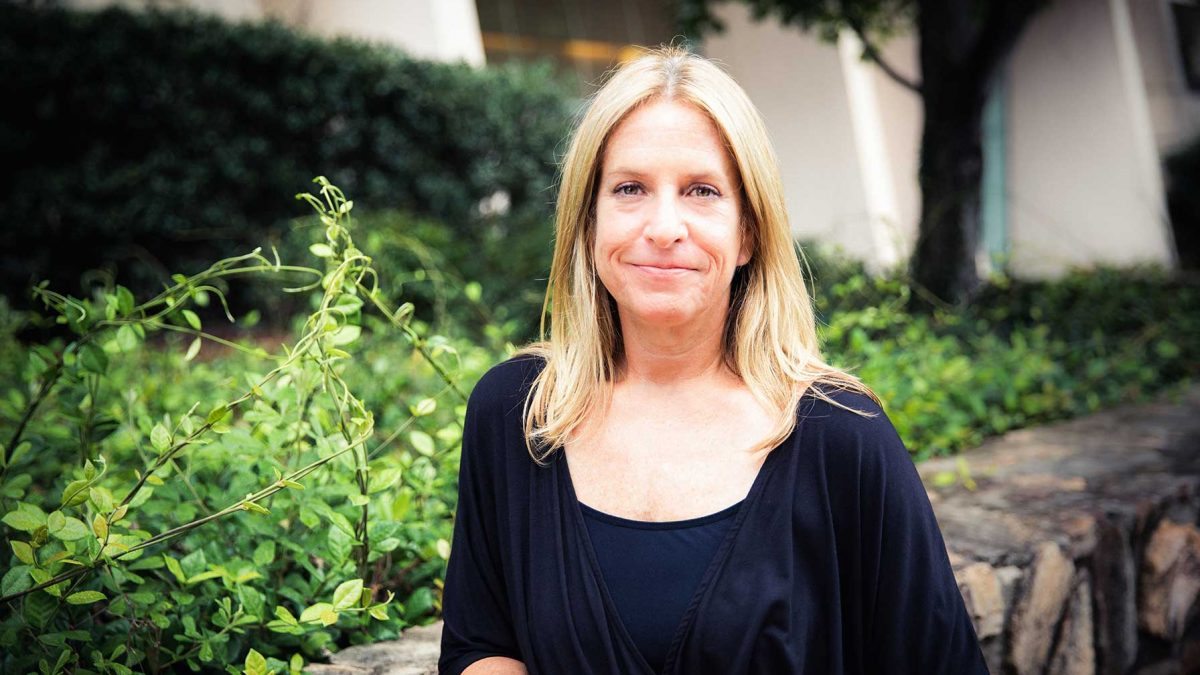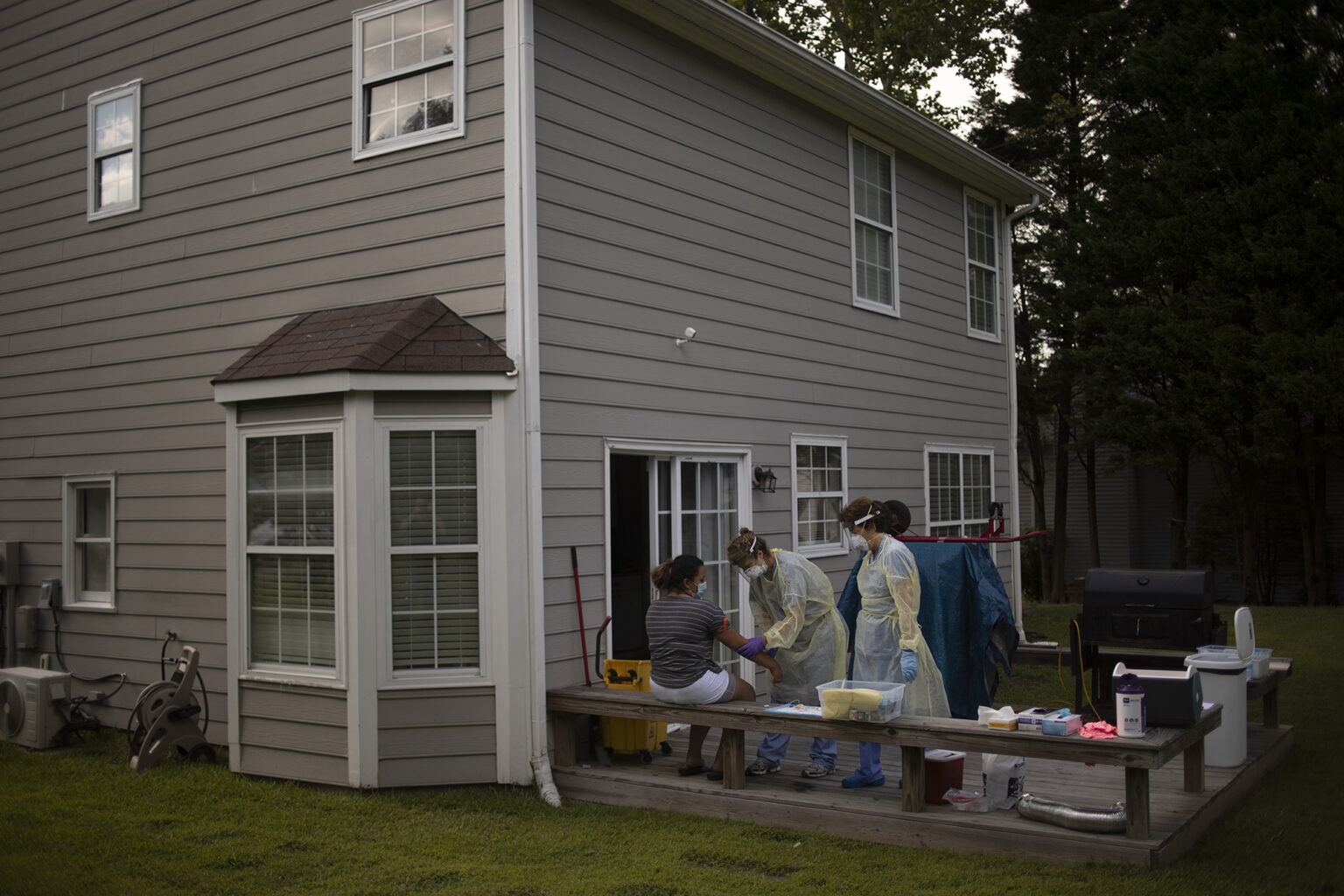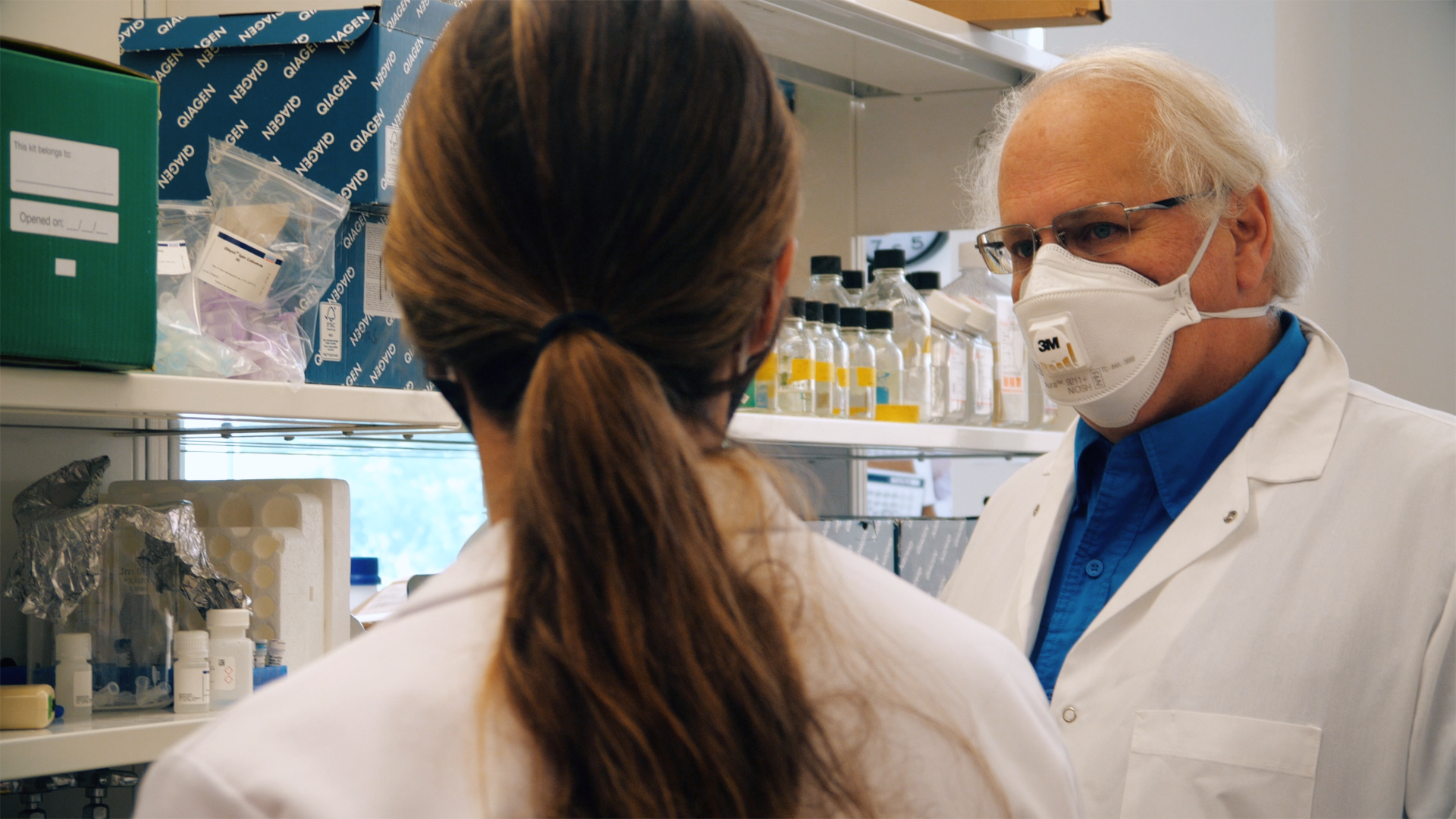Testing a vaccine
The medical director of the HIV Cure Center is leading a clinical research team in the UNC Division of Infectious Diseases to conduct a large phase 3 trial for a COVID-19 vaccine.

It takes a convergence of disciplines, community participation and clinical excellence to test a vaccine under normal circumstances. But, these days, life is far from normal.
With COVID-19 deaths exceeding 200,000 in the U.S. alone, six months into the coronavirus pandemic millions of people are hoping — and waiting — for a safe and effective vaccine that will stop the virus in its tracks, creating immunity, preventing sickness and mitigating spread.
Associate professor Cindy Gay ’98 (MD), ’99 (MPH) is part of a dedicated team of doctors, nurses, medical assistants, research specialists, pharmacists, dta and project managers from different areas of expertise at Carolina, united in the common goal to find a vaccine for COVID-19. Committed to doing their part to save lives, they have prioritized this effort in order to run Carolina’s phase 3 clinical trial of the mRNA-1273 vaccine developed by pharmaceutical company Moderna.
As the primary investigator of the study, Gay’s motivation for pivoting from HIV research to a COVID-19 vaccine trial is the urgency of the moment.
“It is just so needed,” she said. “This is a global tragedy that has impacted our lives on so many levels. As a physician I hear about the stress and the fear, the uncertainty and the anxiety from my patients and colleagues.
The big picture
Testing the efficacy and safety of a potential vaccine is a three-phase process. During phases 1 and 2, small groups of people receive the trial vaccine. By phase 3, the vaccine trial is expanded to include thousands of participants. If the vaccine proves effective and safe in a phase 3 trial, it can move along to the FDA approval process.
The phase 3 clinical trial of the Moderna vaccine at Carolina is taking place at the Clinical and Translational Research Center — one of more than 90 sites testing the vaccine across the U.S. The overall goal of the national study is to enroll 30,000 volunteers from a myriad of backgrounds with various levels of day-to-day potential exposure to the virus.
These sites will continue to enroll participants until they meet that goal. By gathering such a large and varied pool of volunteers, researchers hope to determine if there’s a significantly different rate of infection in the placebo and vaccine groups and whether the vaccine is at least 50% effective.
So far, the UNC team has more than 100 participants who have given their informed consent, and they are working around the clock to move each eligible volunteer through the enrollment process.
“Our UNC goal is to enroll as many qualified volunteer participants as possible,” added Miriam Chicurel-Bayard, a clinical trial research nurse involved in the study. “There’s so much interest in the community, so we’re ramping up our staff internally so we can see the number of people who are interested and eligible to participate.”
Ramping up staff
After a participant is screened through a national registry or directly by the research team and determined eligible to participate in the vaccine trial at UNC-Chapel Hill, a clinical trial research nurse calls them to verify their eligibility and go through the consent process.
Friday, September 11, was Alex Bradley’s first day in the clinic, but he had spent the previous day on the phone with participants answering questions about the study and verifying informed consent on behalf of the local trial. A former nurse at a hospital in Goldsboro, North Carolina, Bradley moved to the area and joined the UNC team as a clinical trial research nurse.
“The work we do before the office visit is a lengthy process, but it’s rewarding to be a part of all this,” Bradley said.
Like Bradley, many staff members working on this trial are new hires.
“We’re at the front edge of research, so we’re having to start up quickly and develop our clinical flow and strategies as we go. Then we assess how things are going to move forward,” said Chicurel-Bayard, who’s been working on HIV treatment and prevention trials and studies for years.
“Everyone on our original team pivoted from what they were doing before COVID-19,” added Gay. “We are hiring new staff as fast as we can to support the trial and the participants in it.”
The volunteers
After the consent process is complete, participants come in for office visits. Gay or her colleagues physically examine each participant and answer any outstanding questions.
“Honestly, the best part is meeting the people willing to come in and volunteer and hearing their reasons why,” shared Gay. “People are pretty excited to tell you that they feel like they’re doing their part.”
One patient told Gay that he is participating in the study because his parents need the vaccine. Another participant, a working mom trying to home school her kids, said she is eager for her children to be able to safely go back to school. A health care worker is worried he’ll end up infecting his family.
Asking volunteers to intentionally expose themselves to the virus is, of course, unethical, which is why researchers seek to enroll volunteers with high-risk jobs or lifestyles.
“Ideally we are looking for participants who have frequent contact with others or who are living with someone who does — people who work at grocery stores or plants, health care workers, staff at nursing homes or prisons, first responders,” Gay explained. “We have one participant who is a health care worker whose wife is a physician, and they have kids in daycare — that’s several family members who are in contact with other people on a regular basis.”




